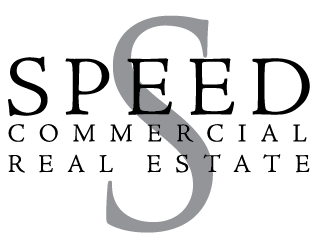If it’s your first time entering the commercial real estate market, you’ve likely been confused by a number of terms that you’ve heard. Like any profession, the commercial real estate world has its own set of lingo. You’ll need to understand it if you’re going to get the best deal. This is true whether you’re looking to acquire a new space or lease out one that you already own. In this post, we’ll cover the commercial real estate terminology that you need in order to make informed decisions. Use these terms to have meaningful conversations with commercial real estate professionals.
Commercial Real Estate Terminology
This first set of terms will include all of the most common words and phrases you’ll hear when discussing or researching commercial real estate investments. We’ve broken them down into logical groupings to make it easier to read. You can also find what you are looking for quickly if you are here for a specific term.
Financial Terms
Some of the most confusing parts of real estate terminology are those related to finances. Although several of these terms are familiar to anyone who runs a business, there are some that are unique to real estate.
Net Operating Income
This is a simple valuation metric for a property. It consists of the property’s income minus its expenses. When counting expenses, mortgage payments and other debt service fees are not included. It is a metric purely of property expenses, so the NOI of a property does not change when the underlying loan does.
Capitalization Rate
The NOI metric makes it easy to determine how well a property is doing independently of factors that will change when ownership does, but it doesn’t provide a full picture. By dividing the NOI by the market value of the property, the capitalization rate gives a better picture of what a potential investment is worth. You may also see this term abbreviated as cap rate.
Cash Flow
Sometimes, you want to know exactly how much money a property is generating. While the NOI metric we’ve discussed so far leaves out mortgage and debt expenses, cash flow adds those expenses into the equation. NOI is used to remove the previous owner’s loan information from the equation, and cash flow is used to account for that of the new owner.
Cash On Cash Return / ROI
Once you have your cash flow figured out, you can use it to calculate how quickly you’ll get your investment back. Your cash on cash return, or return on investment (ROI), is the cash flow of the property divided by the total cash you’ve invested. The cash invested includes the down payment and any additional fees that were paid.
Cash Out Refinance
By increasing the NOI on a property, investors can refinance the property at its new, higher value. Doing so allows them to pull out the original down payment, so they can pay off investors while still retaining ownership of the property. This is a common technique in the commercial real estate market.
Debt Service Coverage Ratio
This is also called the debt coverage ratio or debt to income ratio. This is a metric used by banks to determine how much money you will have leftover after you’ve paid them. It is calculated by dividing your NOI by your annual debt. A DSCR of 1.0 would mean every penny of your income is going to cover your debt. To ensure that a loan is lendable, banks like to see a DSCR of 1.2 or higher. This lets them know that you will be able to easily afford your payments and not just be skating by month to month.
Building Classes
As you search for your commercial property, you’ll come across buildings rated by class. These rating will let you know what kind of condition the building is in.
- Class A — These are top-of-the-line buildings. They are newer construction in high-value areas of town. You can be assured that a Class A building will be in pristine condition, but the price will be high.
- Class B — These buildings are a little older and may need some minor upkeep. But, they are sound properties that you can expect to be in passable condition.
- Class C — These buildings are fixer-uppers. They can be expected to be older buildings that need work done to restore them to their former glory.
Types of Lease
Learning the terms and conditions of a lease is an important part of understanding commercial real estate terminology. It will help you be able to compare the options available to you.
Full-Service Lease
With a full-service lease, the tenant will pay the landlord a single fee and the landlord will pay for everything else. This includes taxes, utilities, repairs, insurance, and other expenses.
Triple Net Lease
The various net leases shift some financial burden to the tenant. Under a triple net lease, tenants must pay taxes, insurance, and maintenance. The other types are grouped together under modified gross lease below.
Modified Gross Lease
This is an umbrella term for double net leases, single net leases, or any other type of lease where clients and landlords split responsibility for payment. With double net leases, landlords pay for maintenance, and single net leases are when landlords pay for everything except taxes.
Ground Lease
This is a leasing arrangement where the tenant owns the building, but leases the land that it is on. Because of the unique situation these leases present, they often have very long terms and options to renew.
Other Real Estate Terminology: Lease Terms
Understanding your leasing options will require more than just knowing what the type of lease is. The terms below explain what you are expected to pay and what you’ll be getting in exchange for that payment.
Base Rent
As seen above, some leases require additional fees to be paid by the tenant. The base rent is the amount you’ll be paying solely for rent. Any taxes, insurance, or maintenance fees that may be applicable are not included in this figure.
Usable Square Footage
This is often used in relation to office space. This figure tells you exactly how much space will be exclusively for you. Lobbies and other common areas are shared commercial space that you’ll technically have access to. However, they aren’t very useful in knowing what you can do with a space. The usable square footage figure excludes those areas.
Per-square-foot Rent
When looking at properties of varying size, comparing base prices is a lot like comparing apples and oranges. Divide the rent by the square footage. This way, you’ll have a more accurate picture of how the different properties compare in price. This figure is almost always provided for you, so you won’t need to do the math yourself.
People to Know
Being able to use this real estate terminology doesn’t mean a lot if you aren’t talking to the right person. There are a number of professionals involved in the commercial real estate business. This list will help you figure out which ones you need to be talking to for your specific goal.
Property Manager
Landlords rarely handle the day-to-day operations of managing their properties themselves, especially if they own many properties. A property manager is someone who is paid by the landlord to handle those responsibilities. In addition to the day-to-day operations and maintenance duties, property managers will find renters for vacant space and ensure that prices are competitive with the market.
Real Estate Agent
A real estate agent is a real estate sales professional that has passed the certification in their state to use the title. Each state has different requirements before someone can use the title of real estate agent, but real estate agents in all states are licensed professionals.
Leasing Agent
When a property owner decides that they want to lease out their property, they need a real estate professional to help them through the process. This is the job of the leasing agent. They help determine an optimal price for your property, work on your behalf to collect rent and provide customer service, and facilitate sales by posting listings and giving tours.
Real Estate Broker
If a real estate agent wants to take the next step in their career, they can pursue further training and become a real estate broker. Again, each state’s requirements are different, but real estate brokers have a more in-depth knowledge of the real estate business than agents do. The extra training includes topics such as real-estate law, insurance, and ethics. You may hear the terms principal broker, managing broker, and associate broker. These terms represent a broker’s rank at their brokerage, in descending order.
Tenant Broker
Just as a listing agent helps people seeking to lease out their properties, a tenant broker helps people looking for properties to lease. They will be able to explain the current real estate market, help you find properties that match your needs, and negotiate the best deals for you.
Real Estate Terminology is Easier with Professionals
Even when you know the common commercial real estate terminology, dealing with real estate can be confusing. The complexity of commercial real estate makes it even more confusing. Whether you are using your new property as an investment or as your next headquarters, getting the right deal can make a big impact on how successful you are. If you need advice for your next real estate deal, we invite you to contact a representative from Speed Commercial Real Estate today.

